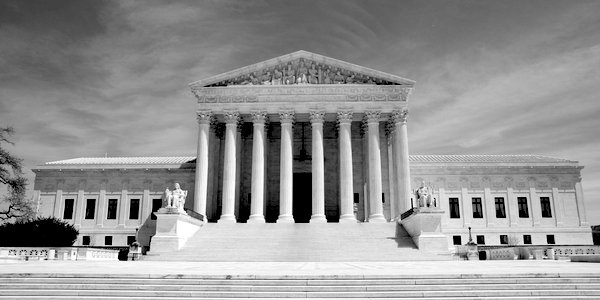IN A RULING already being hailed as the ‘Yoder of our generation’, the US Supreme Court has delivered a searing rebuke to government overreach in public education.
In the case of Mahmoud v. Taylor, America’s highest court sided with parents from diverse religious backgrounds, ruling that forcing children to participate in mandatory LGBTQ+-inclusive instruction without opt-out rights constitutes a grave violation of religious liberty under the First Amendment.
This landmark 6-3 decision, authored by Justice Samuel Alito, categorically affirms that public education cannot be weaponised to undermine a child’s religious upbringing, sending shockwaves through political and legal circles far beyond US borders.
At stake was a policy by the Montgomery County Board of Education in Maryland that compelled children as young as five to participate in instructional sessions involving books that, according to the Court, ‘clearly conveyed normative messages’ on identity and relationships, often in stark contradiction to the religious teachings of their families.
In chilling detail, the ruling cited how parents were denied notice, barred from opting out, and even publicly derided by education officials as bigoted for objecting.
The Court found this not only unconstitutional but ‘a very real threat to the free exercise of religion that the First Amendment was designed to prevent’.
Notably, Justice Alito drew powerful parallels to Wisconsin v. Yoder (1972), affirming that ‘the religious education of one’s children is among the most sacred duties of faith’, and cannot be coerced or neutralised by state-run curricula.
The timing could not be more consequential. In Britain, the Children’s Wellbeing and Schools Bill faces mounting scrutiny for similarly empowering central government to override local, parental, and faith-based educational settings.
According to legal briefings submitted to Parliament, the US decision in Mahmoud v. Taylor offers a sobering warning. As one UK education advocate framed it:
‘This ruling ought to shake every Parliamentarian to their very core. If such ideological mandates are constitutionally intolerable in America, they are morally indefensible in Britain.’
Legal experts draw sharp parallels between the opt-out bans in Maryland and proposed UK measures that would give local authorities intrusive powers to monitor, regulate, and potentially criminalise parents who do not comply with state-defined ‘wellbeing’ or ideological content.
One senior UK legal commentator, reflecting on the Moyle and Mahmoud rulings, remarked:
‘This is not about America. It’s about liberty, conscience, and the outer limits of state power. The UK Schools Bill now finds itself on the wrong side of history — and morality.’
The Court’s decision has put governments on notice: state-run education cannot impose belief systems under the guise of inclusion or regulation.
While the promotion of safety is an essential duty of any responsible institution or government, the ruling makes clear that this cannot come at the cost of trampling faith, family values, and constitutional freedoms.
Safeguards must be grounded in actual, demonstrable risk – not imposed pre-emptively or ideologically. To enact sweeping measures in the absence of real danger is not prudent governance; it is an erosion of trust, a breach of conscience, and a dangerous overreach of state authority.
Crucially, the US Court also rejected the argument that the availability of home-schooling or private education absolves the state of responsibility. While alternative options exist, the Court affirmed that public education is a public right – not a privilege reserved for those willing to compromise their religious beliefs:
‘The government cannot make access to that right conditional upon surrendering one’s conscience. That is not accommodation — that is coercion.’
The ramifications are clear: Mahmoud v. Taylor is not merely a US constitutional milestone. It is a clarion call to all democratic governments: uphold the sanctity of family, conscience, and community, or risk the collapse of the very freedoms that underpin liberal society.
As debate over the UK’s Schools Bill intensifies, legislators across party lines must now grapple with this judicial thunderclap from across the Atlantic.
Anything less than a complete re-evaluation of the bill’s ideological and legal architecture would now appear not only politically reckless, but legally indefensible.
Meanwhile, everyone’s help is urgently needed to trigger a full Commons debate on the dangerous and oppressive Schools Bill that is passing through own Parliament now. We believe that no education legislation affecting parental rights, freedom of belief or home education should become law without an external review, cross-party, grounded in the Human Rights Act and Equality Act, and completed before final passage. This is the crux of our petition.
To sign it please click on this link: Require Independent Scrutiny Before Passing Education Laws Affecting Rights.
As it stands the Schools Bill allows councils to veto school moves, harvest children’s data and criminalise parents for paperwork errors. The wording of our petition locks in independent, legally anchored scrutiny for the Schools Bill and any future bill.
If 10,000 of us sign, ministers must reply on the record; if 100,000 sign, MPs must debate it in the chamber.
Please also sign and share the Change.org declaration too, if you have not already done so.
Together, these petitions should act as a pincer movement the Government cannot ignore. We only have a short window to achieve this before the Schools Bill is enacted.
This article appeared on the Rabbi’s Substack on June 30, 2025, and is republished by kind permission.











